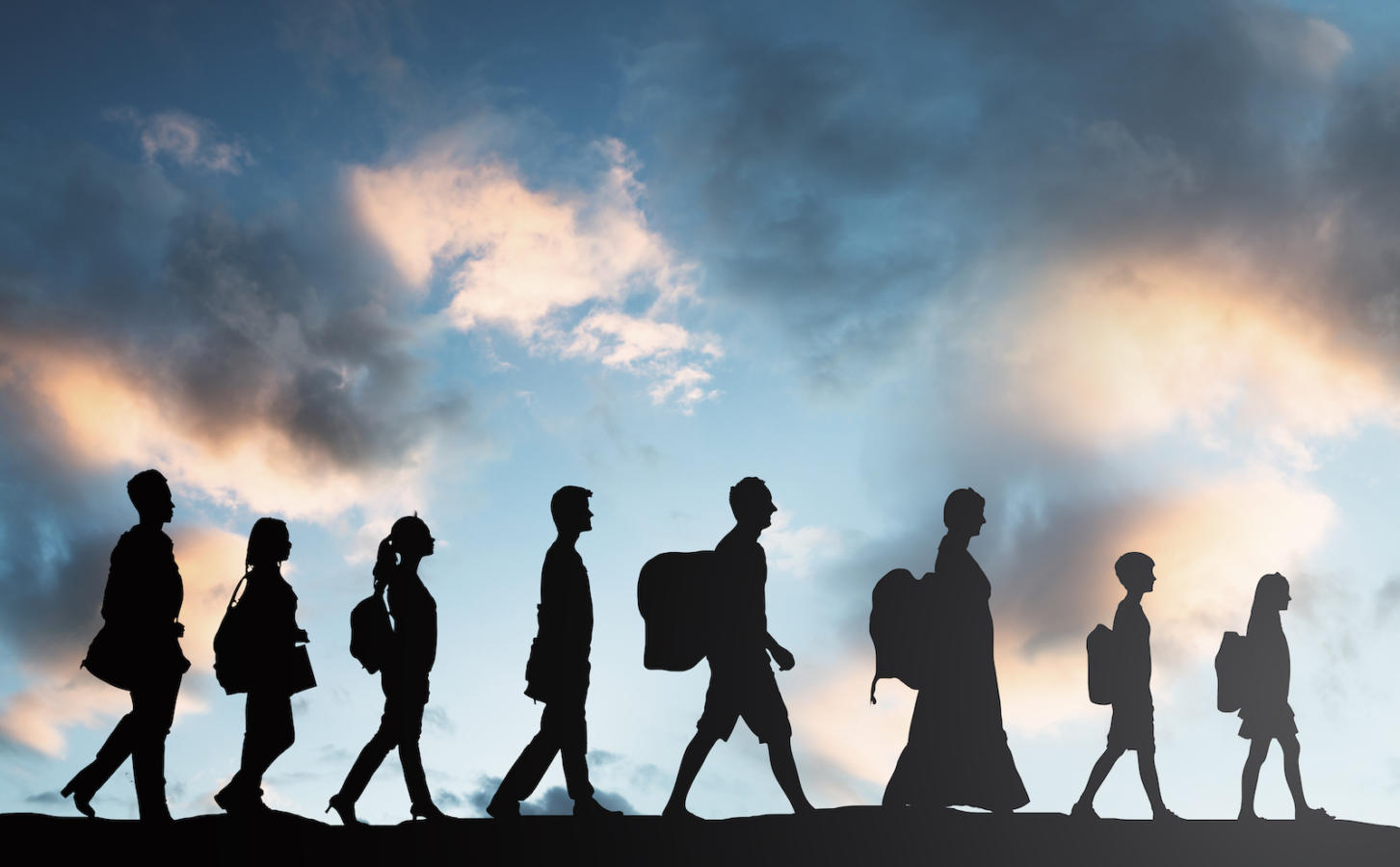“There shall be one law for the native and the immigrant who lives among you” Exodus 12:49
On Passover, Jews celebrate not only the liberation of the Hebrew slaves from oppression and cruelty, but also the blessings that free movement ordain to a nation seeking to form an identify. One could argue that the Passover story is primarily about embracing an ethical consciousness of the stranger. Yet an even more pertinent and contemporary read is that Passover is about cultivating the crucial emotion of empathy, especially when it comes to seeing life through the eyes of the immigrant, the asylum seeker, and the refugee.
As a people who have suffered oppression—not only in biblical times but throughout our history — we are instructed consistently not to attack immigrants with hateful rhetoric because we have felt this pain. Our forefather Abraham was commanded to become an immigrant Genesis 12:1. Elsewhere in the Torah, there are positive commandments to love the foreigner in our midst Deuteronomy 10:18 and negative commandments against oppressing or perverting justice for them in any way Exodus 22:20; Deuteronomy 24:17. Elaborating on that prohibition, the Midrash teaches: “You shall not wrong or oppress the stranger, for you were strangers in the land of Egypt. You shall not wrong with words, and you shall not oppress financially,” (Mekhilta d’Rabbi Yishmael, Parshat Mishpatim).
The sages of the Talmud supported the right to immigrate and move around freely. “One who has not made good in one place and fails to move and try his luck in some other place has only oneself to complain about.” Bava Metzia 75b. One cannot remain stuck in an underprivileged region, the rabbis tell us, if it is a clear dead end for oneself and one’s family.
With your help, My Jewish Learning can provide endless opportunities for learning, connection and discovery.
We not only owe immigrants their inherent and basic human rights, we also have specific religious obligations to go above and beyond to protect them from harm as proven by the large number of times, and the many ways, the Torah instructs us to be ethically mindful toward this population. Our responsibility to the immigrant — or perhaps, more aptly, the heroic journeyer — requires that we honor the image of God in all people.
Jewish tradition reminds us not to become like the land of Sodom, the paradigmatic evil society described in the Book of Genesis, which is said to have been cruel to strangers in its midst. “They issued a proclamation in Sodom saying, ‘Everyone who strengthens the hand of the poor and the needy and the stranger with a loaf of bread shall be burnt by fire,’” (Pirke D’Rebbe Eliezer 25). The foremost crime of Sodom was that they did not sustain the needs of the stranger passing through their lands.
Time and again, Jewish tradition tells us that God is the owner of all land. From this teaching, we come to understand that Jewish ethics apply to all people, not simply those born in a given place. Rabbi Samson Raphael Hirsch, elaborating on the meaning of never turning another person away from comfort or refuge, explained that there are no preconditions for receiving basic rights other than being human: “The absolute equality in the eyes of the law between the native and the foreigner forms the very basic foundation of Jewish jurisdiction.”
Rabbi Joseph B. Soloveitchik, whose eloquent teachings on the intersection between traditional Jewish thought and contemporary attitudes, commented on the notion that those who journey to foreign lands to seek freedom often become the most ardent and patriotic: “When the need arises, the nomad stands up and fights for his freedom and many a time proves superior in battle to the settled king.”
But perhaps it was Emmanuel Levinas, the French talmudist and foremost philosopher of Jewish ethics of the 20th century, who said it best: “The respect for the stranger and the sanctification of the name of the Eternal are strangely equivalent.”
As Jews, our ancestors have been eternal immigrants from Abraham to Ellis Island. They were my heroes, as are the modern immigrants striving to survive and thrive in a challenging world. The prophetic day will come when our society sees the immigrants among us not as scoundrels but as heroes who were willing to make dangerous and uncertain treks from home to support themselves and their families.
Rabbi Dr. Shmuly Yanklowitz is the president and dean of Valley Beit Midrash in Phoenix, Arizona. He is also a noted author and social justice activist who has been routinely named to listings of the most influential rabbis in America. The opinions expressed here represent the author’s and do not represent My Jewish Learning or any other organizations.

